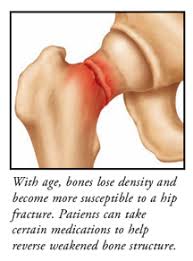
Recently Diagnosed or Relapsed? Stop Looking For a Miracle Cure, and Use Evidence-Based Therapies To Enhance Your Treatment and Prolong Your Remission
Multiple Myeloma an incurable disease, but I have spent the last 25 years in remission using a blend of conventional oncology and evidence-based nutrition, supplementation, and lifestyle therapies from peer-reviewed studies that your oncologist probably hasn't told you about.
Click the orange button to the right to learn more about what you can start doing today.
- You are here:
- Home »
- Blog »
- Healthy Living Products »
- Multiple Myeloma Dx, Off-label Drugs?
Multiple Myeloma Dx, Off-label Drugs?

“…medications are often prescribed for OLDU with poor or absent clinical evidence. Radley et al1reported that 73% of medications prescribed for an off-label use had poor or no scientific support.”
Hi David- My Dad was diagnosed with multiple myeloma (MM) 18 months back with hip fracture, and is now using a walker. He is 75 and doing well. He was on revlimid and other chemotherapy drugs as well as nutritional supplements.
Now we want to go more natural but with a cocktail of off-label drugs that starve cancer and anti angiogenesis properties.
My dad is dealing with anemia and his platelet count is currently low. Further, my dad needs to heal and his bones need to be stronger before he undergoes a hip replacement which he is eager to do.
I’d like to know your view on the late Dr Nicholas Gonzalez protocol based on Autonomic Nervous System and other clinical peculiarities which suggest most MM do well with more fat,moderate protein and less carbs and not necessarily a ketogenic diet but with variation due to individual genetic make up lifestyle etc.
The theory makes a lot of sense especially when he and his coleagues get great results… Will like to know your thought on this and if you have encountered patients that did targeted individualised diet and supplement regimen.
Thanks and looking forward to start the course soon Regards, Mark
Hi Mark,
- MM Survivor
- MM Coach
- Director PeopleBeatingCancer
Recommended Reading:
- Muscle, Bone, Protein and the Multiple Myeloma Survivor
- Multiple Myeloma Treatments- Evidence-based Medicine
- Multiple Myeloma Therapy- Non-toxic Bone Health
Ten Common Questions (and Their Answers) About Off-label Drug Use
“The term off-label drug use (OLDU) is used extensively in the medical literature, continuing medical education exercises, and the media. Yet, we propose that many health care professionals have an underappreciation of its definition, prevalence, and implications.
This article introduces and answers 10 questions regarding OLDU in an effort to clarify the practice’s meaning, breadth of application, acceptance, and liabilities.
Off-label drug use involves prescribing medications for indications, or using a dosage or dosage form, that have not been approved by the US Food and Drug Administration.
Since the Food and Drug Administration does not regulate the practice of medicine, OLDU has become common…
In addition, health care professionals should educate themselves about OLDU to weigh the risks and benefits and provide the best possible care for their patients…
Question 1: What is the Definition of OLDU?
The most common form of OLDU involves prescribing currently available and marketed medications but for an indication (eg, a disease or a symptom) that has never received Food and Drug Administration (FDA) approval.8,9 Hence, the specific use is “off-label” (ie, not approved by the FDA and not listed in FDA-required drug-labeling information). The term OLDU can also apply to the use of a marketed medication in a patient population (eg, pediatric), dosage, or dosage form that does not have FDA approval…
Question 2: Is OLDU Common?
Indeed, OLDU is common. Radley et al1 reported in 2006 that in a group of commonly used medications, 21% of prescriptions were for an off-label use…
Question 3: Can an OLDU for a Given Drug Become a Widely Accepted Practice or Even a Standard of Care?
Off-label drug uses can become widely entrenched in clinical practice and become predominant treatments for a given clinical condition…
Elsewhere, medications are often prescribed for OLDU with poor or absent clinical evidence. Radley et al1reported that 73% of medications prescribed for an off-label use had poor or no scientific support.
In critical care patients, OLDU was without adequate evidence 48.3% of the time.13 Because OLDU is typically less critically evaluated than is on-label drug use, OLDU may be associated with an increase in medication errors.17…
Question 4: What are Some Examples of Widely Practiced OLDUs?
There are examples of widely practiced OLDUs in every specialty of medicine (Table)…
Question 5: If Efficacious, Why is Government Approval not Obtained to Convert Off-label Uses of Drugs to On-label Uses?
Obtaining a new FDA approval for a medication can be costly and time-consuming…
Question 6: Do Physicians Expose Themselves to Legal Vulnerability for Including OLDUs in Their Clinical Practices, Particularly if the Patient Experiences an Adverse Reaction Related to an OLDU?
Physicians have been involved in legal claims due to an adverse reaction related to a medication prescribed for an off-label use.8,36 The legal theories used in these lawsuits include unregulated use of a research drug, failure to provide adequate informed consent for an OLDU, and medical negligence.37…
Question 7: Will Indexed Medical Journals Publish Articles on OLDU?
Reports on OLDU, particularly original observations, are not only tolerated by indexed medical journals but also may actually be encouraged…
Question 8: Can Speakers Discuss OLDU During Accredited CME Courses?
Speakers at accredited CME courses are allowed to discuss OLDU during their presentations…
Question 9: Can Drug Companies Promote OLDU?
The 1938 Food, Drug, and Cosmetic Act gave the FDA the power to regulate promotional materials on medications.53 Two provisions from the FDA prohibit most promotion of off-label uses of medications by pharmaceutical manufacturers and marketers…
Question 10: What is the Difference Between OLDU and Orphan Use of Drugs?
Orphan drugs are medications that are developed and used for rare, or orphan, diseases…

